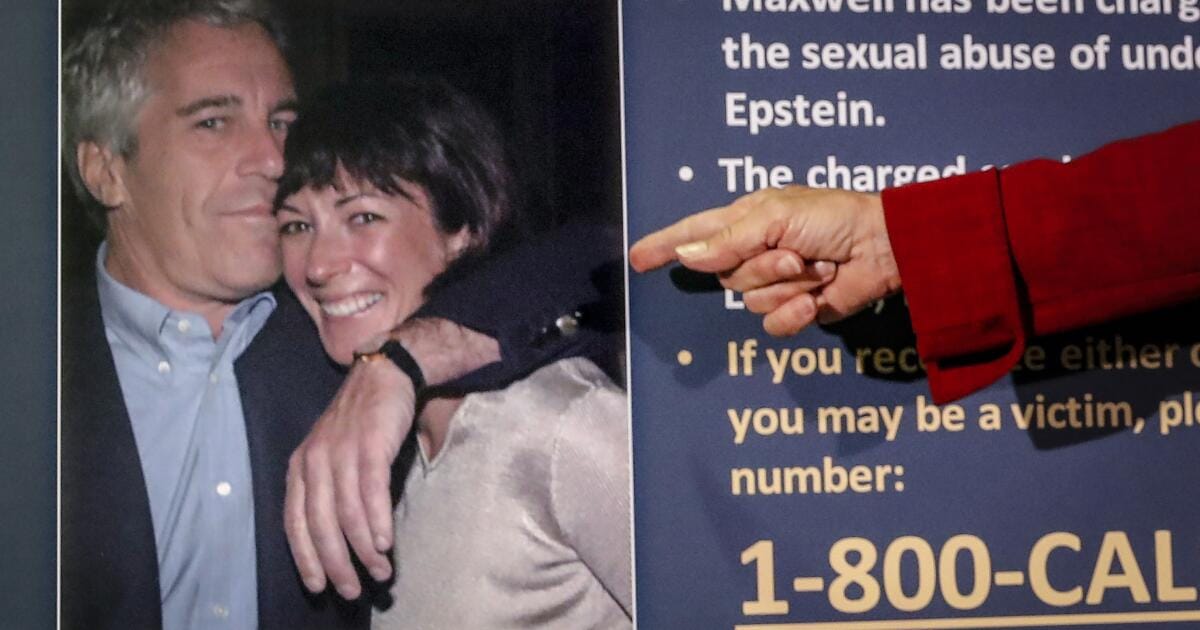WASHINGTON — A key House committee is looking into the investigation of the late Jeffrey Epstein for sex trafficking crimes, working to subpoena President Trump’s Department of Justice for files in the case and hold a deposition of Epstein’s jailed accomplice and former girlfriend, Ghislaine Maxwell.
The Republican-led House Oversight and Government Reform Committee acted just before House Speaker Mike Johnson (R-La.) sent lawmakers home early for a monthlong break from Washington, a move widely seen as attempt to avoid politically difficult votes for his GOP caucus on the Epstein matter.
The committee’s moves are evidence of the mounting pressure for disclosure in a case that Trump has unsuccessfully urged his supporters to move past. But they were also just the start of what can be a drawn-out process.
Here’s what could happen next in the House inquiry as lawmakers seek answers in a case that has sparked rampant speculation since Epstein’s death in 2019 and more recently caused many in the Trump administration to renege on promises for a complete accounting.
Subpoena for the files
Democrats, joined by three Republicans, were able to successfully initiate the subpoena from a subcommittee just as the House was leaving Washington for its early recess. But it was just the start of negotiations over the subpoena.
The subcommittee agreed to redact the names and personal information of any victims, but besides that, their demand for information is quite broad, encompassing “un-redacted Epstein files.”
As the parameters of the subpoena are drafted, Democrats are demanding that it be fulfilled within 30 days from when it is served to Atty. Gen. Pam Bondi. They have also proposed a list of document demands, including the prosecutorial decisions surrounding Epstein, documents related to his death, and communication from any president or executive official regarding the matter.
Ultimately, Republicans who control the committee will have more power over the scope of the subpoena, but the fact that it was approved with a strong bipartisan vote gives it some heft.
The committee chairman, Rep. James Comer (R-Ky.), said he told the speaker that “Republicans on the Oversight Committee were going to move to be more aggressive in trying to get transparency with the Epstein files. So, we did that, and I think that’s what the American people want.”
Depose Maxwell?
Comer has said he is hoping that staff from the committee can interview Maxwell under oath on Aug. 11 at or near the federal prison in Florida where she is serving a lengthy sentence for child sex trafficking.
In a congressional deposition, the subject typically has an attorney present to help them answer — or not answer — questions while maintaining their civil rights. Subjects also have the ability to decline to answer questions if they could be used against them in a criminal case, though in this instance that might not matter because Maxwell has already been convicted of many of the things she is likely to be asked about.
Maxwell has the ability to negotiate some of the terms of the deposition, and she already conducted two days of interviews with Justice Department officials this past week.
Democrats warn that Maxwell is not to be trusted.
“We should understand that this is a very complex witness and someone that has caused great harm and not a good person to a lot of people,” Rep. Robert Garcia of Long Beach, the top Democrat on the Oversight Committee, told reporters this week.
Other subpoenas
Committee Republicans also initiated a motion to subpoena a host of other people, including former President Clinton, former Secretary of State Hillary Clinton as well as former U.S. attorneys general dating back to Alberto Gonzales, who served under President George W. Bush.
It’s not clear how this sweeping list of proposed subpoenas will play out, but Comer has said, “We’re going to move quickly on that.”
How will Bondi comply?
Trump has often fought congressional investigations and subpoenas. As with most subpoenas, the Justice Department can negotiate the terms of how it fulfills the subpoena. It can also make legal arguments against handing over certain information.
Joshua A. Levy, who teaches on congressional investigations at Georgetown Law School and is a partner at Levy Firestone Muse, said that the results of the subpoena “depend on whether the administration wants to work through the traditional accommodation process with the House and reach a resolution or if one or both sides becomes entrenched in its position.”
If Congress is not satisfied with Bondi’s response — or if she were to refuse to hand over any information — there are several ways lawmakers can try to enforce the subpoena. However, that would require a vote to hold Bondi in contempt of Congress.
It’s practically unheard of for a political party to vote to hold a member of its party’s White House administration in contempt of Congress, but the Epstein saga has cut across political lines and driven a wedge in the GOP.
Calls for disclosure
Ultimately, the bipartisan vote to subpoena the files showed how political pressure is mounting on the Trump administration to disclose the files. Politics, policy and the law are all bound up together in this case, and many in Congress want to see a full accounting of the sex trafficking investigation.
“We can’t allow individuals, especially those at the highest level of our government, to protect child sex traffickers,” said Rep. Summer Lee (D-Pa.), a committee member.
The Trump administration is already facing the potential for even more political tension. When Congress comes back to Washington in September, a bipartisan group of House lawmakers is working to advance to a full House vote a bill that aims to force the public release of the Epstein files.
Groves writes for the Associated Press.
